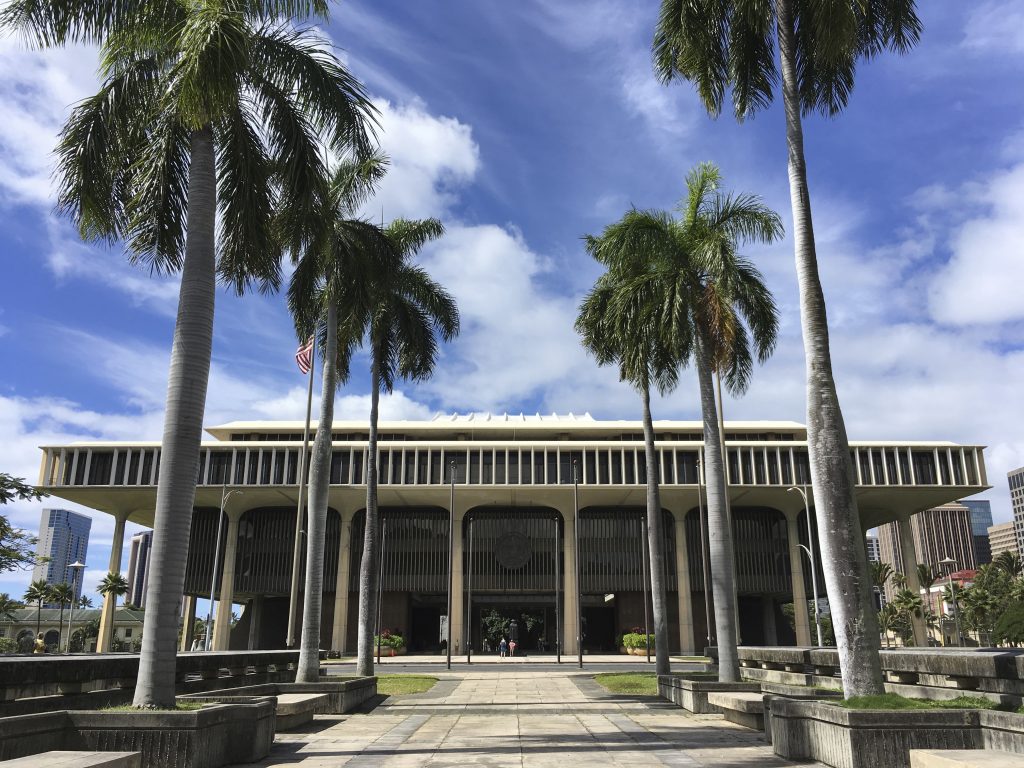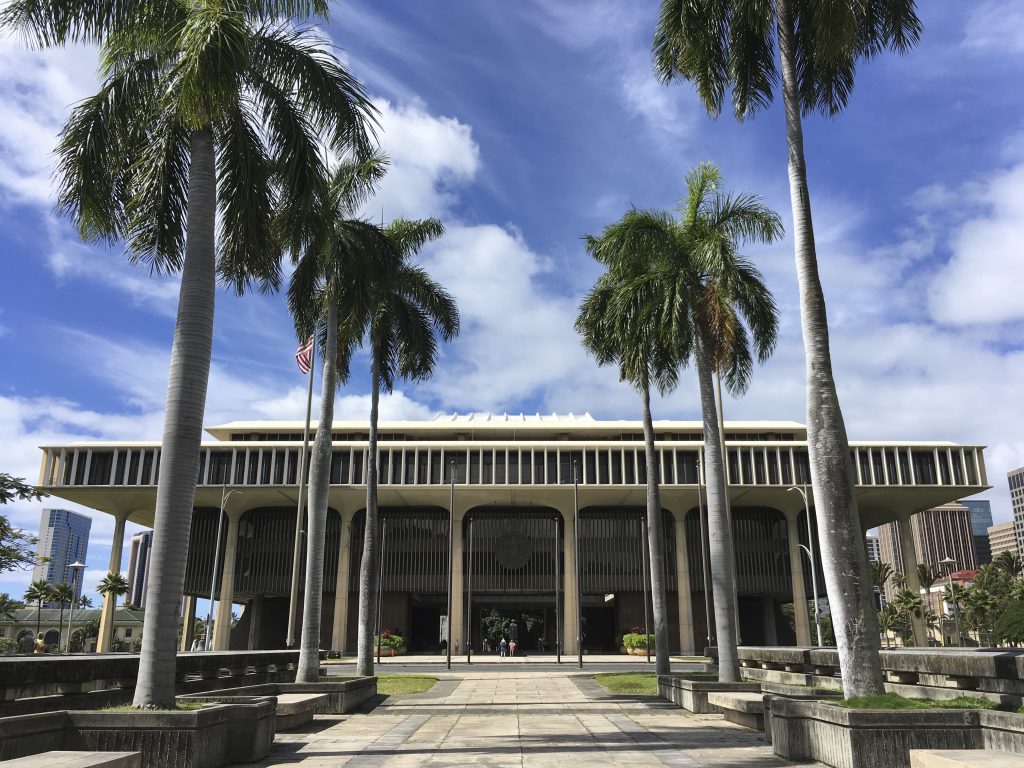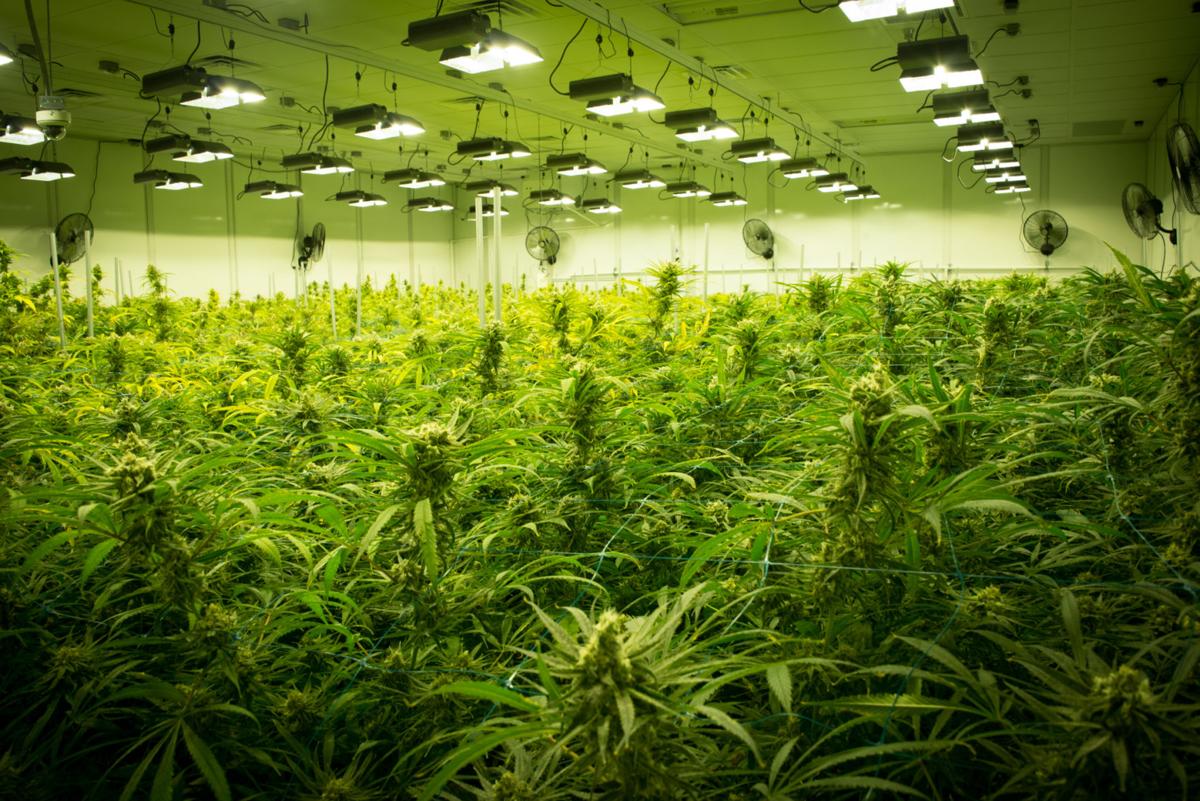
HONOLULU — On the political spectrum, Hawaii is among the bluest of states. Democrats control all the levers of power at the state and federal levels, and voters back Democratic presidential candidates over Republicans by some of the widest margins in the United States.
The state has committed to the Paris climate agreement that President Donald Trump rejected and was the first state to require people to be at least 21 years old to buy cigarettes. The tourist haven even banned certain types of sunscreen because they can harm coral reefs.
But when it comes to legalizing recreational marijuana for adult use, the islands are out of step with liberal stalwarts such as California and Vermont that have already done so, and other left-leaning states such as New York and New Jersey that are racing toward joining them. On March 1, 2019, a legalization bill that made it farther in the legislative process than previous efforts died when lawmakers failed to consider it in time for a deadline.
On March 1, 2019, a legalization bill that made it farther in the legislative process than previous efforts died when lawmakers failed to consider it in time for a deadline. Click To Tweet
Democratic Senate Majority Leader J. Kalani English, shown Jan. 25, 2016, has been trying to introduce marijuana legalization bills for the past 15 years. His latest effort was thwarted again March 1, 2019, when lawmakers failed to pass the legislation out of committee by a deadline on the same day, effectively killing the bill. (Associated Press file photo/Marina Riker)
Senate Majority Leader J. Kalani English has introduced marijuana legalization bills for the past 15 years — but Hawaii has a track record of moving slowly on social issues. For example, other states moved far more quickly to sanction same-sex marriage and medically assisted suicide.
Half of the Democrats in the state Senate co-sponsored English’s measure, helping spur speculation this would be the year legalization becomes reality.
But the effort fizzled as other leaders worried about contradicting federal law, which continues to classify marijuana as illegal, and jeopardizing Hawaii’s existing medical marijuana program.
To move forward, the bill had to pass the Senate Health Committee and Senate Ways and Means Committee by a March 1 deadline so it could be considered by the full Senate. But the Health Committee did not schedule a meeting on March 1 to consider any bills, effectively killing the marijuana legalization measure.
Democratic Rep. Della Au Belatti, the House majority leader, said before the bill died that she believes Hawaii will legalize adult-use marijuana at some point. But she said lawmakers will vet the issue carefully.
“I also think that we have enough folks who are sitting around the table who are saying ‘Let’s do it right. Let’s not just rush into things and let’s do it right,’ ” she said.
Belatti said lawmakers must closely study the experiences of states that have legalized marijuana. She also wants to have abuse prevention, treatment and education programs set up before legalization. Hawaii also will have to make sure legalized marijuana doesn’t lead to more impaired driving, she said.
For now, Belatti said she’s just inclined toward decriminalizing marijuana or reducing fines and criminal penalties for possession.
Aloha Green is one of the few medical marijuana dispensaries in Hawaii. Lawmakers in the state permitted medical marijuana in 2000, but it took another 15 years before dispensaries could open. (Associated Press file photo/Cathy Bussewitz)
Twelve states and Washington, D.C., have recreational marijuana laws. All except Vermont did it by ballot initiative, an option not available in Hawaii.
Democratic state Sen. Karl Rhoads, the chairman of the Senate Judiciary Committee, said Hawaii residents are becoming more accepting of legalization now because it has happened elsewhere and “the world hasn’t come to an end.” There’s also recognition that the status quo isn’t working, he said, noting that juniors at a high school near his district tell him they can get marijuana whenever they want.
“It’s like Prohibition,” he said. “We’ve been trying to squish it out, squeeze it out, by making it illegal. And it’s just failed miserably.”
Rhoads’ committee passed an amended version of English’s bill in February 2019, the first time a legalization measure has ever made it out of any committee.
Democratic state Sen. Roz Baker, the chair of the Health Committee, said she did not want to do anything that would threaten Hawaii’s nascent medical cannabis dispensary system. Dispensary sales began in 2017.
Baker believed the federal government will leave medical marijuana alone but might take a more active approach to enforcing federal drug laws if Hawaii takes the next step. Democratic Gov. David Ige expressed similar concerns.
Democratic Rep. Joy San Buenaventura said it did not make sense to push the measure through without Ige’s support. San Buenaventura represents Puna, a mostly rural area on the Big Island long known for cannabis growing.
Brian Goldstein, the founder and CEO of medical marijuana dispensary Noa Botanicals, said it is inevitable Hawaii will eventually allow recreational use. He acknowledged it may take a while.
Hawaii’s Legislature approved medical marijuana in 2000 — four years after California became the first state with such a law — but it took island lawmakers another 15 years to set up a dispensary system.
Carl Bergquist, the executive director of the pro-legalization Drug Policy Forum of Hawaii, said progress is being made even though the idea failed again this year.
“It’s a huge step … just to have that conversation started,” he said.
— Audrey McAvoy
Featured Image: Hawaii’s effort to legalize adult-use marijuana stalled again March 1, 2019, when lawmakers at the Capitol above, in Honolulu, failed to clear out of committee by a deadline on the same day. (Associated Press photo/Audrey McAvoy)















